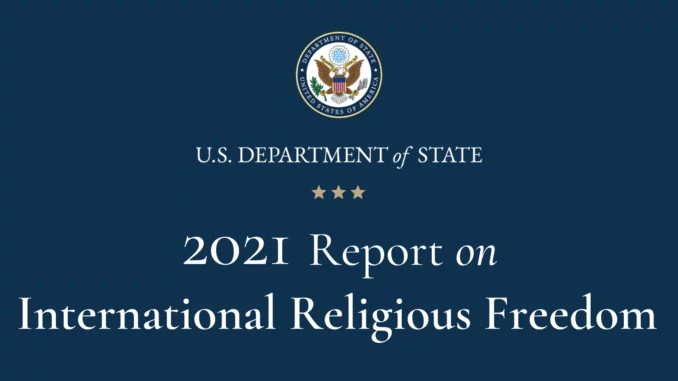
Morocco is among the countries that have seen “notable progress” in the field of religious freedoms, said Thursday the U.S. Secretary of State Antony Blinken.
In remarks at the release of the State Department’s 2021 Report on International Religious Freedom, Blinken said that “this year’s report includes several countries where we see notable progress, thanks to the work of governments, civil society organizations and citizens.”
He mentioned in this connection some initiatives made by Morocco, saying “for example, last year the Kingdom of Morocco launched an initiative to renovate Jewish heritage sites, like synagogues and cemeteries, and to include Jewish history in the Moroccan public school curricula.”
The 2021 Report on International Religious Freedom hailed King Mohammed VI’s leadership as “the monarchy continued to support the restoration of synagogues and Jewish cemeteries throughout the country, efforts it stated were necessary to preserve the country’s religious and cultural heritage and to serve as a symbol of tolerance.”
The document recalls that on December 14, 2021 King Mohammed VI introduced an initiative to renovate Jewish heritage sites in the country, including hundreds of synagogues, cemeteries, and other sites in several cities.
In this regard, the U.S. report quoted the Israeli publication Israel Hayom which said that the Jewish cemetery in Fez, which includes 13,000 graves, was included in the initiative, and that the King had decided to reinstate the original names of some of the country’s Jewish neighborhoods.
Similarly, the State Department said the Moroccan government continued to fund the study of Jewish culture and heritage at state-run universities.
In October, the report added, the Ministry of National Education announced a change to the public school curriculum to include Jewish heritage and history in both Arabic and French, starting in the fourth grade of primary school.
The document also mentioned the mission of the Rabat-based Mohammed VI Institute for the Training of Imams, Morchidines and Morchidates (religious preachers and spiritual guides), responsible for shaping the country’s religious life and promoting its interpretation of Sunni Islam.
It employed 2100 morchidines (male Muslim spiritual guides) and
901 morchidates (female Muslim spiritual guides) in mosques or religious
institutions throughout the country, the report stated, adding that the morchidates taught religious subjects and provided counsel on a variety of matters, including women’s legal rights and family planning. The institute continued to provide government-required one-year training for imams and trained an average of 150 morchidines and 100 morchidates per year.
It also continued to train foreign imams, predominantly from sub-Saharan Africa. The training sessions fulfilled the requirement for religious leaders to acquire a certificate issued by the High Council of Ulema to operate in the country. The High Council of Ulema also continued to host continuing training sessions and capacity-building exercises for the religious leaders.
The government required religious leaders who worked in the country to abide by the guidelines outlined in the MEIA-issued Guide of the Imam, Khatib, and the Preacher, the report said, noting that the MEIA continued to monitor Quranic schools to prevent what the ministry considered inflammatory or extremist rhetoric and to combat violent extremism.
